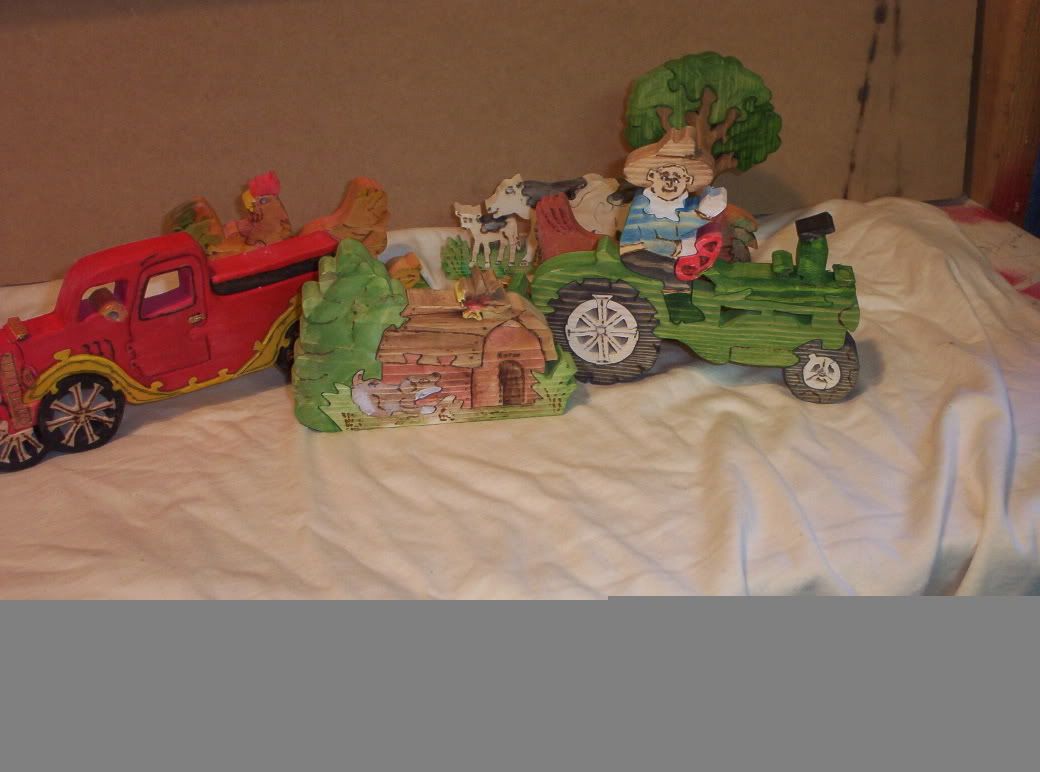fremar":gwk6pi4f said:
Can anyone recommend a make/model of a decent starter scrollsaw?
Simple question - complicated answer

!
Practically any scrollsaw on the market will enable you to cut the Spitfire and chopper patterns. It's when you decide that you want to cut more ambitious patterns that you could easily become frustrated by the limitations of your machine. It would be such a shame for the saw to end up out of the way in the workshop, never to see the light of day again, and for you to think that scrolling was just too difficult because you had an inappropriate machine for your ambitions.
So what are the limitations of 'starter machines'? They are normally made of lightweight material which means the scrollsaw will vibrate when it's used. This makes it difficult to hold your wood and feed it accurately; your hands also get a similar feeling to the 'white knuckle' effect of holding a pneumatic drill for any length of time. These machines also have limited cutting depth so you can only cut relatively thin pieces of wood (most scrollers like to 'stack cut' several pieces at a time). Blade changing is often quite arduous - since you'll break a number of blades when you begin scrolling, this can be extremely tedious. Also, more basic machines tend to use pin-head blades which sit on rockers; this limits the ability to undertake fine work as your skills develop because if you decide to make internal cuts you'll have to drill a particularly large hole in order to feed your blade through. Almost all scrollsaws have the facility to tilt the table but more basic models have angle guages that are often less than reliable; when you're cutting relief work, a difference of ½° can be significant. Another limitation is throat size. When you're cutting a pattern, you'll often need to swing your wood in an almost completely circular movement, so you'll need a saw with a throat that can accept the piece of wood you're intending to work with. As you cut, you'll find that sawdust gathers at the point of the cut. Most modern scrollsaws have a blower which will disperse this dust but it's important to beware of machines that don't because sawdust build up will not only obscure your pattern but it will shorten the life of your blades. Finally, basic models often come with just a single speed. That's usually not a problem at first, but as your skills progress you'll find there are times when the saw seems to be 'running away' with you and the ability to slow the machine becomes important.
So those are the pitfalls to beware of when looking for scrollsaws. When I started, I used a Spiralux saw such as
this one on eBay which gave me a taste for scrolling, even if ¼" plywood was as much as it could cope with! However, it had the virtue that it's impossible to cut yourself with a Spiralux. Nowadays, I think most scrollers would be drawn to the sort of cheap saws that you see in B&Q and other sheds. I've never tried one of these machines myself because when I started scrolling you either had to buy a quality machine or cut by hand - cheap Far Eastern products weren't available. I've heard quite a good report of the
Ferm saw (although the person who recommended it never posted again

!) and I know from seeing demonstrations of the SIP saw that it should be avoided like the plague. For myself, I'm struck by how similar all these saws look and how similarly they're priced. I'd be surprised if any of them were much better than the SIP.
Woodworkers who want a saw that will give them a good introduction to scrolling should expect to spend significantly more than £100 and look at saws such as the
Delta 40-540 which has a very good reputation amongst scrollers. A more expensive alternative might be the
Axminster AWFS18 which looks suspiciously like a rebadged Hegner. I've never used this saw myself but I have heard that it's very good.
I hope this helps and I haven't made scrolling sound more daunting than it really is!
If you can get to the Stoneleigh exhibition at the middle of the month you'll be able to check out very high quality saws at the Hegner stand. That should give you more idea of what to look out for.
Gill


































